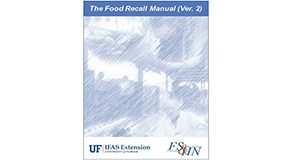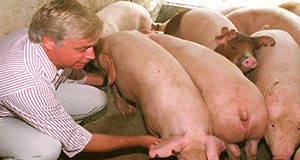Any business involved in the manufacture, processing, packing, holding, or delivery of food to humans needs to understand and address food recalls. When safety concerns arise with food you are manufacturing, you have a legal and ethical responsibility to mitigate any damage to the health and wellbeing of consumers. This manual details what you need to know to effectively understand and handle a food recall. Written by Keith R. Schneider, Renee Goodrich-Schneider, Douglas A. Archer, Michelle D. Danyluk, George L. Baker, and Chris Thomas and published by the UF/IFAS Department of Food Science and Human Nutrition, February 2018.
http://edis.ifas.ufl.edu/fs108
Tag: Food Safety Modernization Act
The Food Safety Modernization Act of 2011-Final Rule for Preventive Controls for Human Food

This 7-page fact sheet is one in a series covering the different rules promulgated under the new Food Safety Modernization Act (FSMA), which was signed into law on January 4, 2011. It is intended to provide an overview of the final Preventive Controls for Human Food (PCHF) rule. Written by Jessica A. Lepper, Soohyoun Ahn, Keith R. Schneider, Michelle D. Danyluk, and Renee Goodrich-Schneider and published by the UF/IFAS Department of Food Science and Human Nutrition, January 2018.
http://edis.ifas.ufl.edu/fs301
The Food Safety Modernization Act (FSMA) Preventive Controls for Animal Food
The Food Safety Modernization Act (FSMA) was signed into law in January of 2011 and is considered the most sweeping reform of food safety regulations in 70 years. The human food regulations were composed first and, with significant input from industry, academia, and consumer groups as well as other agencies, were then modified to better suit animal food production. In Florida, these new regulations apply to facilities that manufacture, process, pack, or hold food or food ingredients for animals. These facilities may include pet food manufacturers, renderers, ethanol distillers, feed mills, distributors, and others. The primary goal of these regulations is to ensure safe food for the animals, people who handle the feed, and people who consume the final animal products. This 3-page fact sheet discusses requirements, facilities that will most likely be expected to be in compliance, deadlines, development of a food safety plan, and preventive controls qualified individuals. Written by Jason M. Scheffler and Chad Carr, and published by the UF Department of Animal Sciences, December 2016.
http://edis.ifas.ufl.edu/an330

